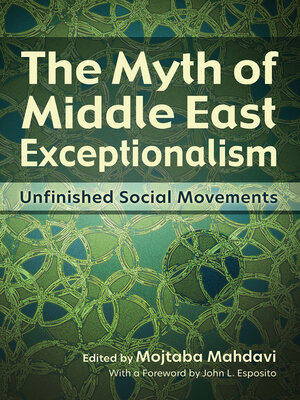The Myth of Middle East Exceptionalism
ebook ∣ Unfinished Social Movements · Contemporary Issues in the Middle East
By Mojtaba Mahdavi

Sign up to save your library
With an OverDrive account, you can save your favorite libraries for at-a-glance information about availability. Find out more about OverDrive accounts.
Find this title in Libby, the library reading app by OverDrive.



Search for a digital library with this title
Title found at these libraries:
| Loading... |
More than a decade after the birth of contemporary social movements in the Middle East and North Africa scholars are asking what these movements have achieved and how we should evaluate their lasting legacies. The quiet encroachments of MENA counterrevolutionary forces in the post-Arab Spring era have contributed to the revival of an outdated Orientalist discourse of Middle East exceptionalism, implying that the region's culture is exceptionally immune to democratic movements, values, and institutions. This volume, inspired by critical post-colonial/decolonial studies, and interdisciplinary perspectives of social movement theories, gender studies, Islamic studies, and critical race theory, challenges and demystifies the myth of "MENA Exceptionalism".
Composted of three sections, the book first places MENA in the larger global context and sheds light on the impact of geopolitics on the current crises, showing how a postcolonial critique better explains the crisis of democratic social movements and the resilience of authoritarianism. The second section focuses on the unfinished projects of contemporary MENA social movements and their quest for freedom, social justice, and human dignity. Contributors examine specific cases of post-Islamist movements, the Arab youth, student, and other popular non-violent movements.
In the final section, the book problematizes the exceptionalist idea of gender passivity and women's exclusion, which reduces the reality of gender injustice to some eternal and essentialized Muslim/MENA mindset. Contributors address this theory by placing gender as an independent category of thought and action, demonstrating the quest for gender justice movements in MENA, and providing contexts to the cases of gender injustice to challenge simplistic, ahistorical and culturalist assumptions.






